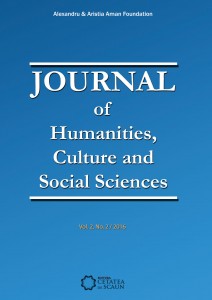Ideology in Hungarian Morality Textbooks
Ideology in Hungarian Morality Textbooks
Author(s): Mehdi GaliereSubject(s): Applied Linguistics, Ethics / Practical Philosophy, School education, Evaluation research
Published by: Alexandru and Aristia Aman Foundation
Keywords: Critical Discourse Analysis; Applied Linguistics; Morality; Education;
Summary/Abstract: Ideology is sometimes considered as equivalent sets of ideas not affected by hegemonic power relations, as Karl Mannheim’s relativist theory would put it, for instance. It is also sometimes considered more critically, as set of ideas that are embedded in hegemonic power relations, and whose political aim is to help sustaining domination, by concealing the contradictions present in society. Drawing on the work of Jan Blommaert, Norman Fairclough, Susan Gal and Antonio Gramsci, this paper investigates in what ways hegemonic ideological meanings can be embedded in educative texts. The actual texts that are analyzed for ideological meaning are Hungarian textbooks for 1st to 8th grade students. The subject of these books is moral education (erkölcstan). Moral education, which aims at influencing the students’ ideas about what is desirable or right in social life and what is not, is deeply embedded in ideological systems of values. The linguistic aspects that are examined in the texts are transitivity and deontic modality. Transitivity analysis establishes which aspects of social life come to be encoded as ‘reality’ that can be then encoded as ‘defensible’ to various degrees with the help of the grammatical means of deontic modality. According to Fairclough, Hodge and Kress, the textual analysis of the different degrees of deontic modality has the potential to bring to light the different and particular social facts the text and its producers intend to frame as universally desirable.
Journal: Journal of Humanities, Culture and Social Sciences
- Issue Year: 3/2017
- Issue No: 02
- Page Range: 33-42
- Page Count: 10
- Language: English

